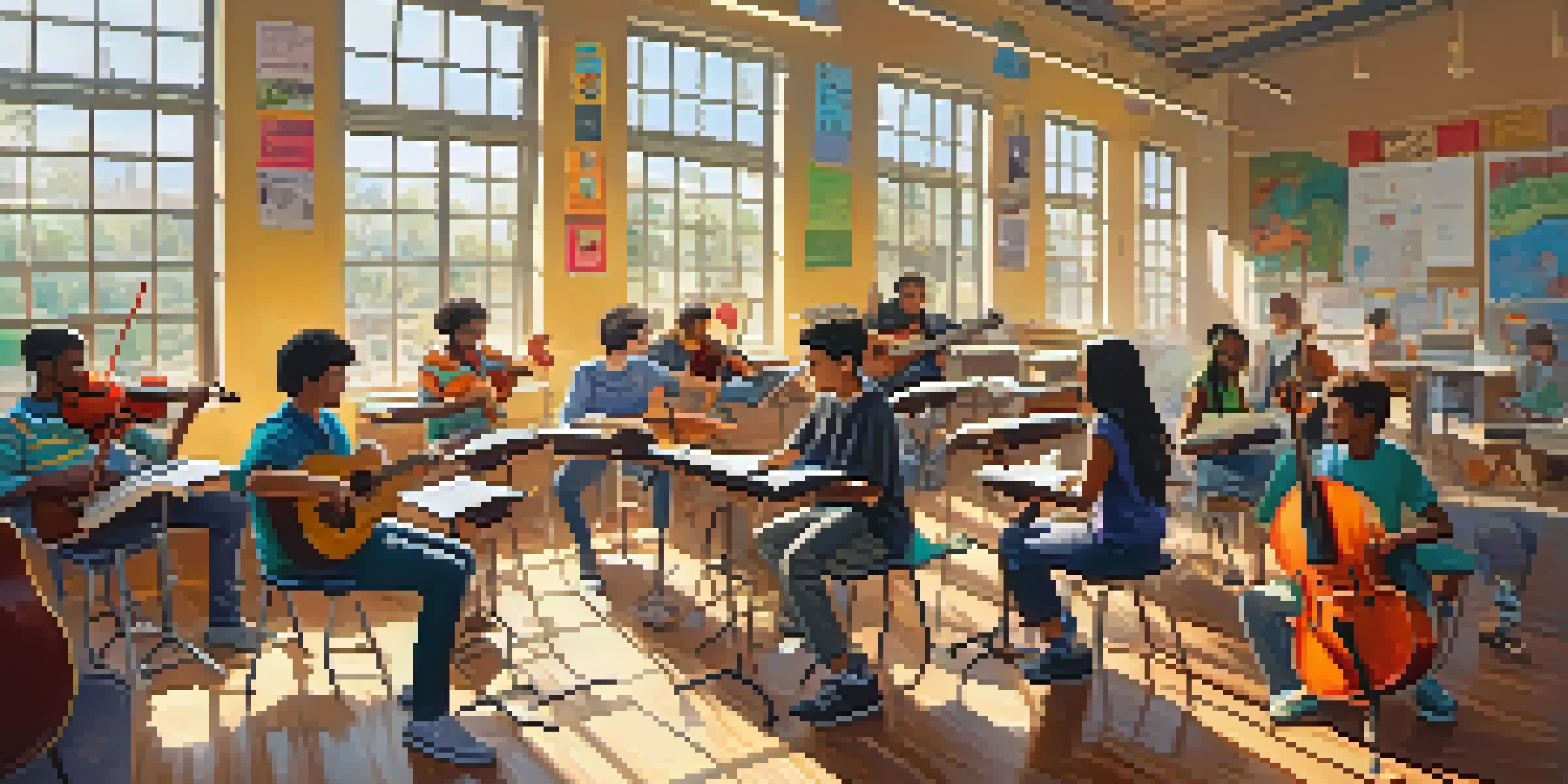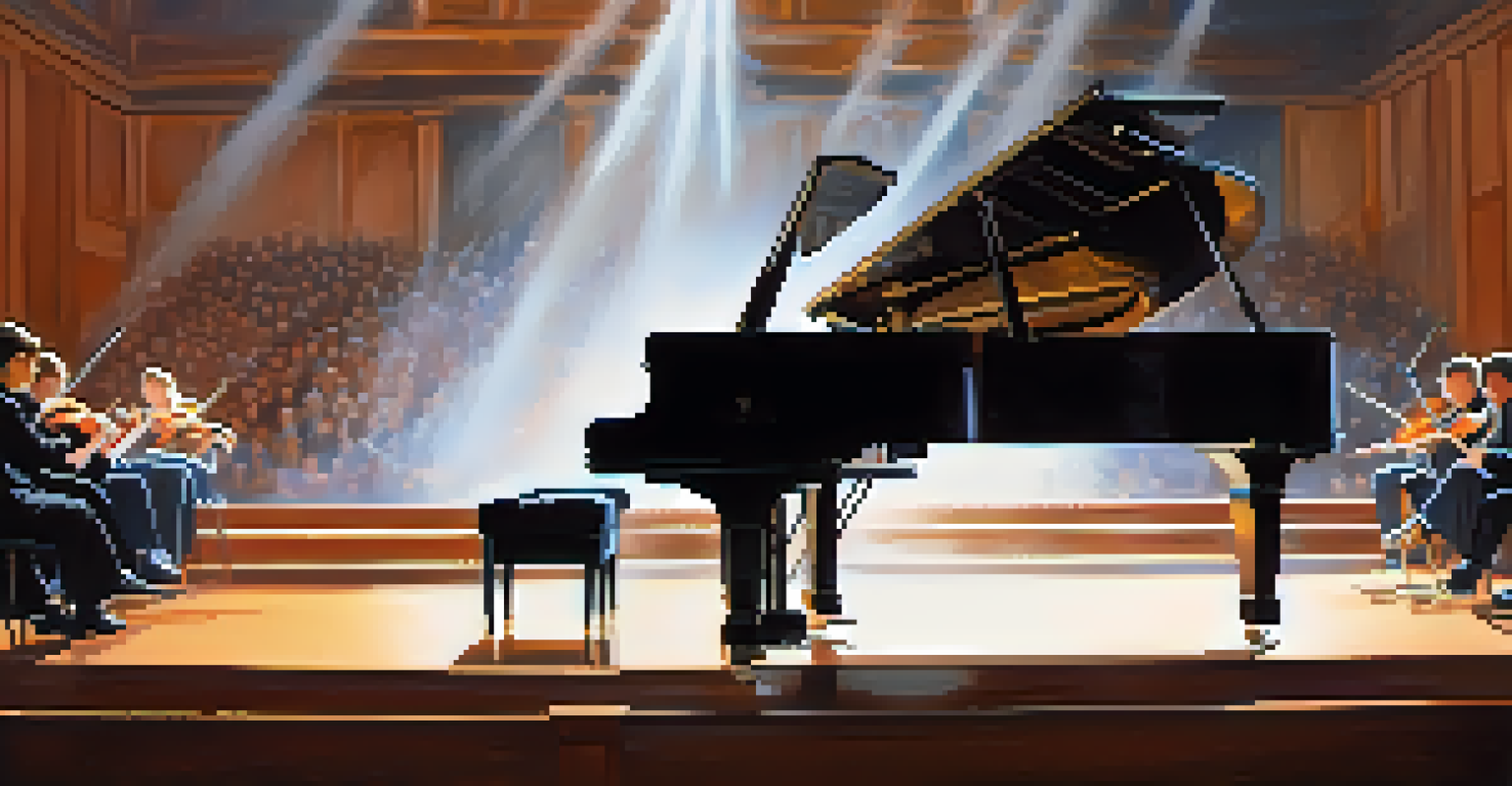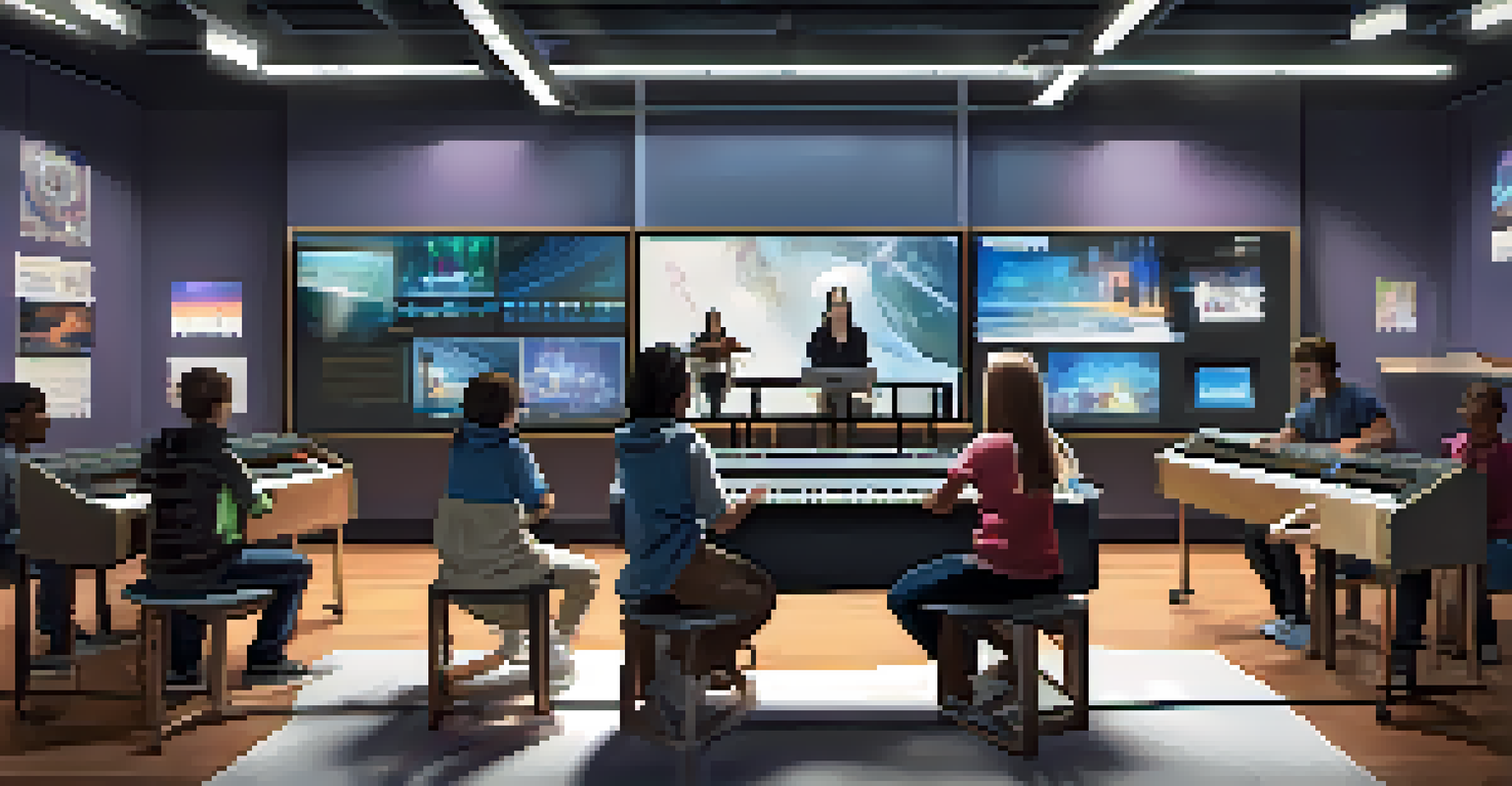Aligning Music Education with 21st Century Skills Framework

Understanding the 21st Century Skills Framework
The 21st Century Skills Framework emphasizes the importance of skills like critical thinking, creativity, collaboration, and communication. These skills are essential for students to thrive in a rapidly changing world. By integrating these competencies into various subjects, educators prepare students for both academic success and real-world challenges.
Music can change the world because it can change people.
In music education, these skills manifest in unique ways. For instance, when students collaborate on a group performance, they practice teamwork and develop communication skills. Creativity shines through composition projects, where students must think outside the box and innovate.
Ultimately, aligning music education with this framework not only enriches students' musical abilities but also equips them with vital life skills. This alignment encourages holistic development, making music education a crucial part of modern curricula.
The Role of Creativity in Music Education
Creativity is at the heart of music education, allowing students to express themselves and explore new ideas. This creative process is not just about making music; it involves problem-solving and innovative thinking. For example, composing an original piece requires students to experiment with different sounds and structures, fostering a creative mindset.

Moreover, engaging in improvisation or songwriting encourages risk-taking and adaptability. These are key components of creative thinking that can be applied beyond the music classroom. Students learn to appreciate the value of trial and error, which is vital in any field.
Essential Skills in Music Education
Music education fosters critical skills like creativity, collaboration, and communication, essential for student success in the modern world.
By nurturing creativity in music education, we prepare students for a world where innovation is paramount. They become not just musicians, but also creative thinkers ready to tackle diverse challenges.
Promoting Collaboration Through Group Activities
Collaboration in music education can take many forms, from ensemble performances to group projects. These activities teach students the importance of working together toward a common goal. When students play in a band or orchestra, they learn to listen to one another and blend their individual sounds into a cohesive performance.
Creativity is intelligence having fun.
This collaborative environment fosters essential social skills, such as empathy and respect. Students learn to appreciate different perspectives, which enhances their ability to work with others in any context. Such experiences are invaluable, as they mirror the collaborative nature of today’s workplaces.
By emphasizing collaboration in music education, we help students develop strong interpersonal skills that will serve them well in their future careers and personal lives.
Enhancing Communication Skills Through Music
Music education inherently involves communication, whether through verbal discussions about music theory or non-verbal cues during performances. Students learn to articulate their thoughts and emotions through music, which deepens their understanding of both the art and themselves. This form of expression is crucial in a world where effective communication is key.
In rehearsals, students must also practice active listening, a critical component of effective communication. They learn to respond to their peers and adapt based on feedback, skills that are directly transferable to any collaborative setting. This process cultivates a sense of community and belonging among students.
Emotional Intelligence Through Music
Engaging in music helps students develop emotional intelligence by exploring and expressing feelings, enhancing empathy and social skills.
By enhancing communication skills through music, we prepare students to express themselves confidently and interact effectively with others.
Critical Thinking and Problem Solving in Music
Music education provides numerous opportunities for critical thinking and problem-solving. Whether analyzing a piece of music or troubleshooting a performance issue, students are constantly engaging their analytical skills. For instance, when interpreting a complex score, they must evaluate different approaches and decide how best to convey the composer’s intent.
Additionally, learning to play an instrument involves overcoming various challenges, such as mastering difficult techniques or understanding musical structures. This process encourages resilience and adaptability, as students learn to navigate obstacles creatively and effectively.
Through these experiences, music education cultivates critical thinking skills that extend far beyond the classroom. Students become adept at approaching problems with a solution-oriented mindset, a valuable asset in any career.
Fostering Emotional Intelligence Through Music
Emotional intelligence (EI) is the ability to understand and manage one’s emotions, and music education plays a vital role in developing this skill. Through music, students explore a wide range of emotions, learning to express their feelings and recognize those of others. This emotional exploration fosters empathy, a cornerstone of EI.
Participating in group performances often requires students to navigate their own emotions while being attuned to the emotions of their peers. This shared experience creates a deeper connection, reinforcing the importance of emotional awareness in teamwork. Such interactions can help students build meaningful relationships and enhance their social skills.
Technology's Role in Music Learning
Integrating technology in music education enriches the learning experience and prepares students for a tech-driven future.
By fostering emotional intelligence through music education, we empower students to connect with themselves and others, a crucial skill for personal and professional success.
Integrating Technology in Music Education
In today’s digital age, integrating technology into music education is essential. Tools like music composition software, online collaboration platforms, and digital audio workstations provide students with innovative ways to create and share music. This integration not only enhances the learning experience but also prepares students for a tech-driven world.
Moreover, technology allows for greater accessibility in music education. Students can access online tutorials, participate in virtual ensembles, and even collaborate with peers from around the globe. This expanded reach promotes diversity and inclusivity within the learning environment.

By embracing technology in music education, we ensure that students are equipped with the skills needed for the future, making them adaptable and ready for the challenges that lie ahead.
The Future of Music Education in a 21st Century Context
As we look to the future, it’s clear that music education must evolve to meet the demands of the 21st century. By aligning with the 21st Century Skills Framework, we can create a music curriculum that not only nurtures musical talent but also develops essential skills for life. This holistic approach ensures that students are prepared for both artistic and academic success.
Educators play a crucial role in this transformation by adopting innovative teaching methods and creating engaging learning environments. By fostering creativity, collaboration, and critical thinking, they can inspire students to explore their musical potential while preparing them for future challenges.
Ultimately, the future of music education lies in its ability to adapt and thrive within the context of 21st-century skills. By prioritizing these competencies, we can ensure that music remains a vital part of a well-rounded education.